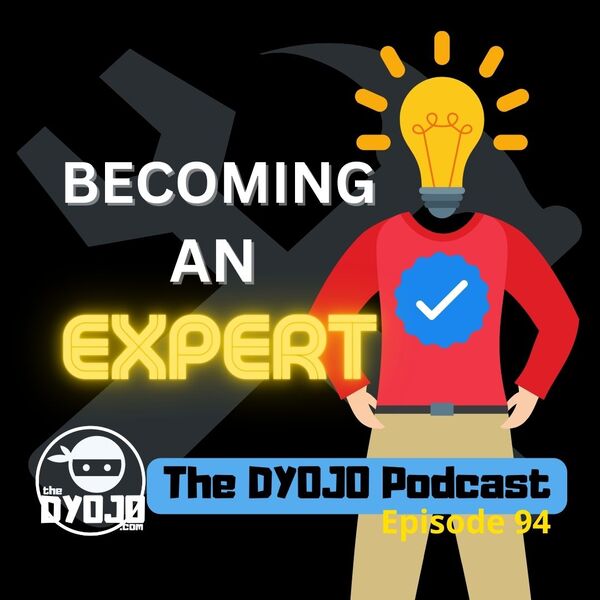An expert is somebody who knows what he's talking about through experience, training, and education. You cannot become an expert without all three.” - Bob Blochinger As a guest for Episode 94 of The DYOJO Podcast, Bob Blochinger shares his thoughts on the roadmap to expertise. For a professional to seek and achieve expertise, they need to be able to:
From his own experience Bob states, “Whatever questions, or problems, or whatever exists that needs explanation or evaluation, the expert needs to know what he's saying and how to explain it so that a regular person can understand.” Determining whether information is reliableIn our discussion, Bob notes that expert witnesses have to pass the Daubert Standard. We share a video from Forensics Group talking about this rule, “According to the Federal Rules of Evidence 702, a witness who was qualified as an expert by knowledge, skill, experience, training, or education.” The Daubert Rule addresses the knowledge, skill, training, and education of a relevant witness. I like how Bob puts it, "Education, training, and experience." Experiences are often one of those key factors that tie all of the information and knowledge together. I find this concept to be interesting. I'm thankful that Mr. Blochinger brought the Daubert Standard up. This is a great metric for determining whether information shared with a restoration contractor is relevant and reliable. A good question to ask, is whether the information that you're receiving from industry leaders, influencers, and experts, (a) is it relevant to the task at hand and (b) does it rest on a reliable foundation. A scientific approach to expertisePerhaps the highest takes arena in which expertise is on display is in the courtroom. Testimony should be based on sufficient facts or data. Experts should be sharing information that is the product of reliable principles and methods. This affirms we want to apply a scientific method or methodology to the processing of information to determine whether it's reliable. The scientific methodology applied to Rule 702 helps us determine:
Does the process, of confirming whether the information is relevant, eliminate confirmation bias? Just because we believe that something is true, did we only seek out information that supported our preconceived notions rather than actually being open to our hypothesis being wrong? Experts demonstrate a mastery of knowledgeCalling upon his experience as an expert witness, Mr. Blochinger shares, “When you sit in a courtroom on the witness stand and you get grilled by the opposing attorney, you do not have notes in front of you. You do not have a book. You do not have photographs. You have to answer questions in a manner that you come across as intelligent. That you understand. We call these competent witnesses subject matter experts.” When the Restoration Industry Association (RIA) created the Body of Knowledge, the stated that the third level of knowledge, mastery, was defined as, “Without reference material, promptly and correctly apply subject knowledge and skills to solve typical problems or address detailed issues in the subject.” Professionals are nearing mastery when they are able to apply the principles of property restoration in their everyday lives without having to check their reference materials. They know the concepts and are able to apply them to real-world situations. Wherever you are at in your professional journey, keep yourself hungry for expertise.
0 Comments
Leave a Reply. |
Words
The DYOJO - helping contractors shorten Archives
June 2024
Categories
All
EstimatingMarketingInsurance ClaimsLeadership |
|
| |||||||


 RSS Feed
RSS Feed
